Thirty-one passionate health professions graduate students have been selected for the distinguished Schweitzer Fellowship – a year-long service learning program that helps Fellows design and implement innovative projects that help address the health needs of underserved Chicago communities.
Named in honor of famed humanitarian and Nobel laureate Dr. Albert Schweitzer, the Chicago Area Schweitzer Fellows Program encourages students to become lifelong leaders in service by helping to address unmet health needs among vulnerable Chicagoland residents. In collaboration with existing community organizations, each Schweitzer Fellow will launch a community-based project, providing 200 hours of service. Using a broad public health lens, the new Fellows will work to improve community well-being and target the social determinants of health—the conditions in which people are born, grow, live, work, and age that have a profound impact on health and quality of life. Projects include:
- Developing a literacy program for immigrant children ages five to seven to help close the achievement gap
- Initiating a therapeutic writing forum for incarcerated women at the Cook County Jail to serve as a support structure for those facing addiction, trauma, grief, or mental illness
- Implementing an ongoing cooking and nutrition education program for young adults transitioning out of housing instability
- Click here to learn more about the Fellows and their service projects.
Utilizing an interdisciplinary approach, the Fellowship exposes students to real-world inter-professional, collaborative care and aims to develop lifelong leaders in service. The 2019-20 Fellows include students from 11 schools, 11 disciplines, and 20 academic programs, ranging from nursing to disability studies and public health. The exceptional class of Fellows was selected from a pool of many applicants through a competitive process.
“I was compelled to apply for the Schweitzer Fellowship because a program with such an impactful history of service could give me the opportunity to serve as well, especially within communities that are vulnerable,” shared Fellow CiErra Garrett, a Rush University College of Nursing student. “I wanted to give myself to a cause, a vision, a challenge. I’m honored to do this work alongside great people.”
In addition to their service projects, Garrett and their peers in the Fellowship will also participate in a thirteen-month program that includes monthly meetings, trainings, and ongoing opportunities for interdisciplinary collaboration. They will also work with a team of mentors from their schools and project sites as well as mentors from our alumni network and the Schweitzer Fellowship Advisory Council, which oversees the program.
“As a community dentist at a ‘safety net clinic,’ I see firsthand that many of my patients are struggling not only with accessing health care, but also with being able to afford to make healthy decisions such as safe housing and choosing nutritious food. Schweitzer Fellows think holistically about what makes a person healthy and their projects often address the ‘upstream’ factors that dramatically affect people’s well-being and health outcomes,” said Sodabeh Etminan, DMD, MPH, Dental Director for Mile Square Health Center and a Schweitzer alumna and member of the Advisory Council. “Whether they are tutoring kids in school or helping people with chronic diseases better understand how to maintain their health, Schweitzer Fellows are infusing their ideas and energy in communities that are lacking resources and all too often overlooked. The Fellowship helps strengthen the skills and confidence of these young idealists to become lifelong leaders in service.”
The new Fellows join a network of over 600 Chicago Program alumni who have provided over 120,000 hours of community service to more than 150 community groups over the course of the Program’s twenty plus year history.
“Every year, our Schweitzer Fellows help Health & Medicine live out our mission of addressing health inequities and supporting the next generation of healthcare providers,” said Margie Schaps, Executive Director of Health & Medicine. “This sort of community impact is only possible through the steadfast commitment of the many individuals, academic institutions, and local foundations that support this program including the Baxter International Foundation, the Michael Reese Health Trust, the VNA Foundation, and the Blowitz-Ridgeway Foundation. We are deeply grateful for their generosity as we welcome this dynamic group of Fellows to the Schweitzer community.”
